
Geneva: The Heart of Swiss Elegance and International Charm
Nestled along the shores of Lake Geneva, the city of Geneva is a jewel of Switzerland, renowned for its breathtaking scenery and cosmopolitan atmosphere. With the majestic Alps as its backdrop, Geneva offers an idyllic setting where history, culture, and modernity intertwine. Visitors can stroll along the picturesque lakeside promenades, explore the charming Old Town with its cobblestone streets and ancient buildings, or delve into the city's rich cultural offerings at its many museums and galleries. Geneva's status as a global hub is evident in its diverse population and international institutions. The city is home to the United Nations Office at Geneva and the Red Cross Museum, making it a center for diplomacy and humanitarian work. For those interested in science, the nearby CERN laboratory offers an intriguing glimpse into cutting-edge research and particle physics. Food enthusiasts will find a culinary paradise in Geneva, with a wide range of dining options that reflect the city's multicultural makeup. From traditional Swiss fondue to international cuisines, there's something to satisfy every palate. The city's markets, such as the Plainpalais flea market, provide a vibrant shopping experience where visitors can find unique souvenirs and local products. No visit to Geneva would be complete without a boat ride on Lake Geneva, offering stunning views of the Jet d'Eau, one of the tallest fountains in the world. Whether you're interested in outdoor activities, cultural exploration, or simply relaxing by the lake, Geneva promises an unforgettable experience for every traveler.
Local tips in Geneva
- Purchase a Geneva Transport Card upon arrival; it offers unlimited public transport within the city for the duration of your stay.
- Visit the Old Town early in the morning to enjoy its beauty without the crowds.
- Don’t miss the International Red Cross and Red Crescent Museum for a deep dive into humanitarian history.
- Take a boat tour on Lake Geneva for the best views of the city and the iconic Jet d'Eau.
- Try the local Swiss chocolate; many shops offer free samples.
- Walk or bike along the Promenade de la Treille for a relaxing break and beautiful city views.
- Explore the Plainpalais flea market on Wednesdays and Saturdays for unique finds.
- Reserve a spot for a guided tour at CERN in advance, as they book up quickly.
Neighbourhoods in Geneva
Geneva: The Heart of Swiss Elegance and International Charm
Nestled along the shores of Lake Geneva, the city of Geneva is a jewel of Switzerland, renowned for its breathtaking scenery and cosmopolitan atmosphere. With the majestic Alps as its backdrop, Geneva offers an idyllic setting where history, culture, and modernity intertwine. Visitors can stroll along the picturesque lakeside promenades, explore the charming Old Town with its cobblestone streets and ancient buildings, or delve into the city's rich cultural offerings at its many museums and galleries. Geneva's status as a global hub is evident in its diverse population and international institutions. The city is home to the United Nations Office at Geneva and the Red Cross Museum, making it a center for diplomacy and humanitarian work. For those interested in science, the nearby CERN laboratory offers an intriguing glimpse into cutting-edge research and particle physics. Food enthusiasts will find a culinary paradise in Geneva, with a wide range of dining options that reflect the city's multicultural makeup. From traditional Swiss fondue to international cuisines, there's something to satisfy every palate. The city's markets, such as the Plainpalais flea market, provide a vibrant shopping experience where visitors can find unique souvenirs and local products. No visit to Geneva would be complete without a boat ride on Lake Geneva, offering stunning views of the Jet d'Eau, one of the tallest fountains in the world. Whether you're interested in outdoor activities, cultural exploration, or simply relaxing by the lake, Geneva promises an unforgettable experience for every traveler.
When is the best time to go to Geneva?
Iconic landmarks you can’t miss
Jardin Anglais
Discover the serene charm of Jardin Anglais, a picturesque park by Lake Geneva, perfect for relaxation, strolls, and iconic floral displays.
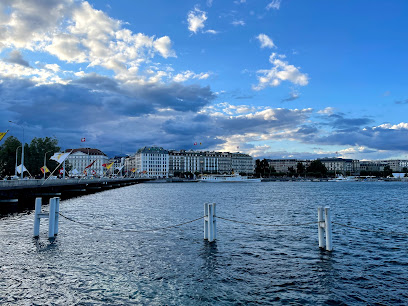
The Geneva Water Fountain
Experience the breathtaking beauty of Geneva Water Fountain, an iconic landmark shooting water 140 meters high, surrounded by stunning lake and mountain views.
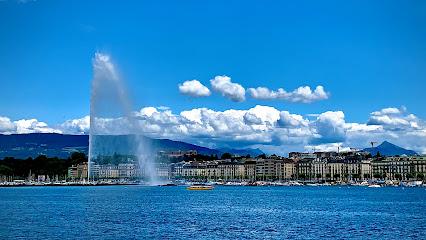
The Flower Clock
Discover the Flower Clock in Geneva, where timeless beauty meets exquisite floral artistry in a stunning lakeside setting.
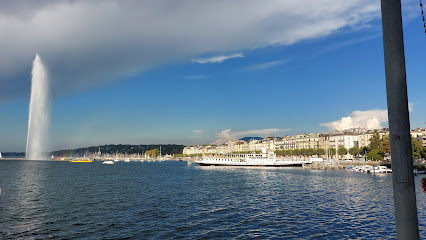
Broken Chair
Discover the Broken Chair in Geneva, a monumental sculpture symbolizing peace and resilience against the backdrop of the United Nations.
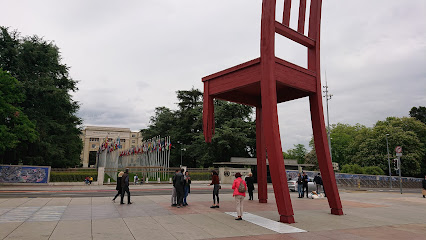
St Pierre Cathedral
Discover the architectural splendor and historical significance of St. Pierre Cathedral, a must-see landmark in Geneva's Old Town.
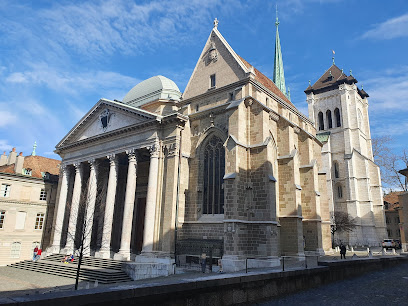
Palais des Nations
Explore the historic Palais des Nations, a UNESCO World Heritage site, where diplomacy and stunning architecture come together in the heart of Geneva.
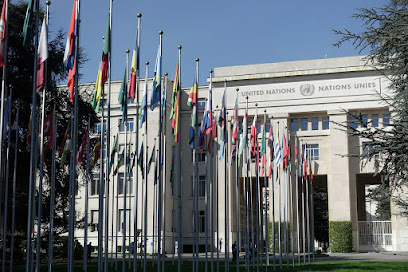
Brunswick Monument
Explore the Brunswick Monument in Geneva, a stunning Gothic tribute to Duke Charles II, offering breathtaking views of Lake Geneva and the surrounding Alps.

Musée d'Art et d'Histoire
Explore the Musée d'Art et d'Histoire in Geneva - a cultural haven showcasing art and history through captivating exhibits and stunning architecture.

Parc de La Perle du Lac
Explore the serene beauty and cultural treasures of Parc de La Perle du Lac, a must-visit park along the stunning shores of Lake Geneva.
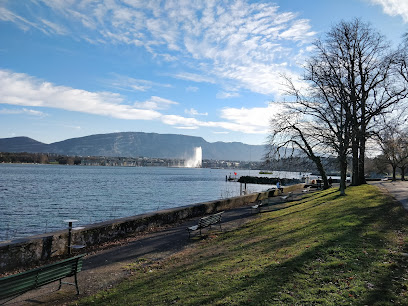
Reformation Wall - Paul Landowski
Explore the Reformation Wall, a historic landmark in Geneva that honors the legacy of the Protestant Reformation and its influential leaders.
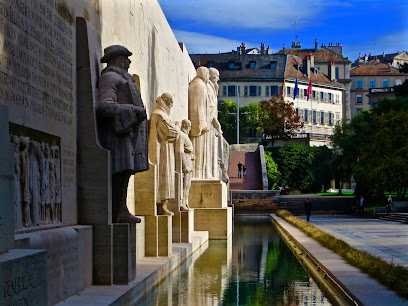
Patek Philippe Museum
Explore the exquisite craftsmanship of Swiss watchmaking at the Patek Philippe Museum in Geneva, a treasure trove for horology enthusiasts.
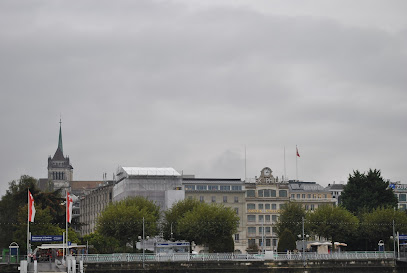
Place du Bourg-de-Four
Explore the historic charm of Place du Bourg-de-Four in Geneva, where culture, history, and local life converge in a picturesque setting.
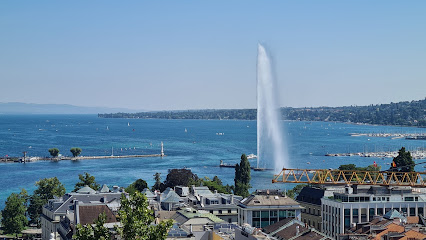
Pointe de la Jonction
Discover the serene beauty of Pointe de la Jonction, where the Rhone and Arve rivers converge in a picturesque park in Geneva.
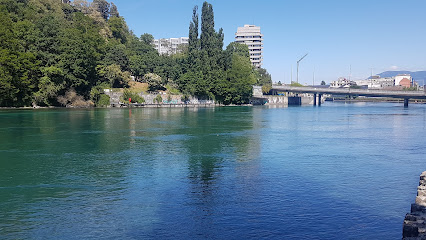
Promenade de la Treille
Discover the serene beauty of Geneva at Promenade de la Treille, a stunning walkway with breathtaking views and lush surroundings.
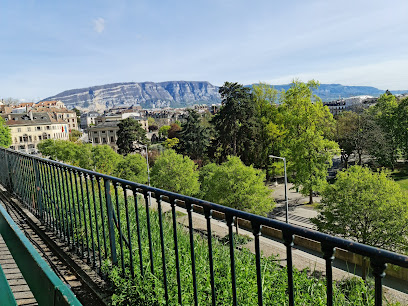
Russian Orthodox Church
Discover the exquisite beauty and spiritual tranquility of the Russian Orthodox Church, a cultural gem in the heart of Geneva.
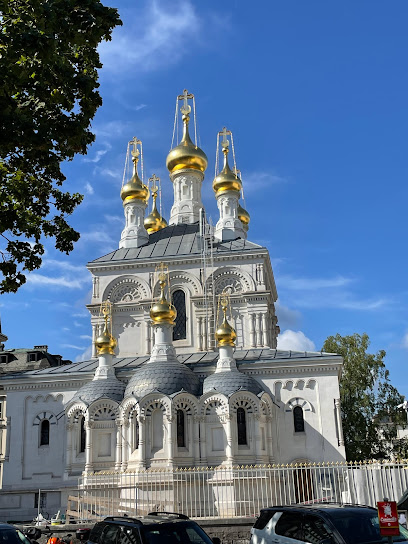
Unmissable attractions to see
Jardin Anglais
Experience the beauty of Jardin Anglais, Geneva's iconic lakeside park with stunning floral displays, breathtaking views, and a serene atmosphere.
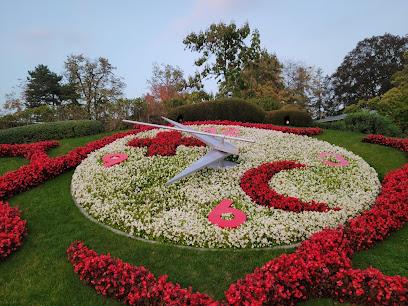
Jet d'Eau de Genève
Experience the breathtaking Jet d'Eau in Geneva, a stunning fountain that symbolizes the city's charm and offers picturesque views of Lake Geneva.
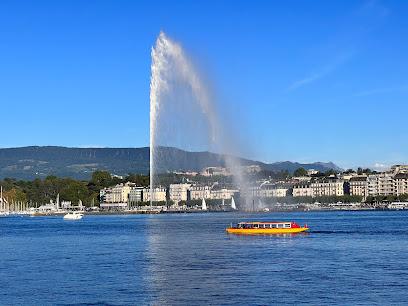
The Flower Clock
Experience the enchanting beauty of the Flower Clock in Geneva, a vibrant symbol of Swiss horticulture and watchmaking tradition.
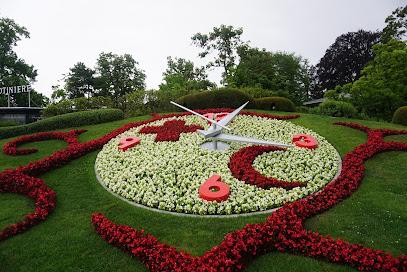
Pont des Amours
Discover the romantic allure of Pont des Amours, a scenic bridge in Annecy, offering breathtaking views and a perfect atmosphere for couples and nature lovers.
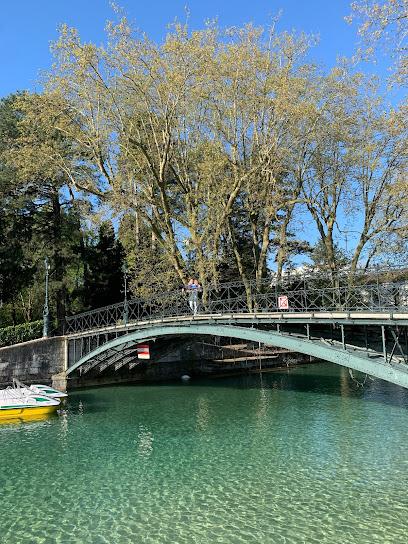
Palexpo
Discover Palexpo, Geneva's premier exhibition and trade center, a hub for international events and conferences showcasing innovation and culture.
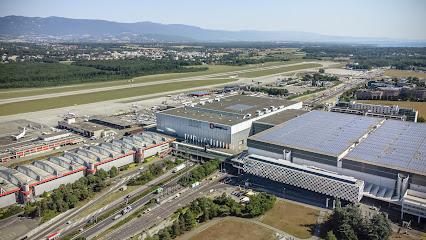
Bains des Pâquis
Experience the charm of Bains des Pâquis, Geneva's enchanting outdoor bathing oasis with stunning lake views and delicious cuisine.
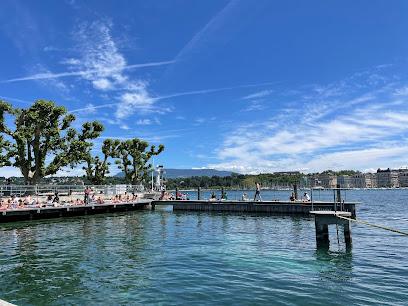
Conservatory and Botanical garden Geneva
Explore the breathtaking Conservatory and Botanical Garden in Geneva, a stunning retreat filled with diverse plants, historical greenhouses, and serene landscapes.
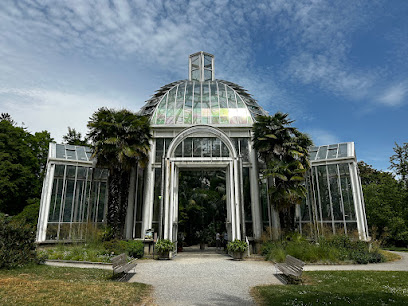
St Pierre Cathedral
Discover the architectural splendor and historical significance of St. Pierre Cathedral, a must-visit landmark in Geneva, Switzerland.
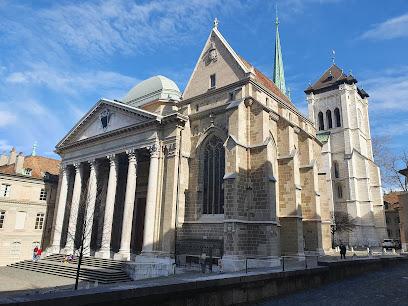
Gorges du Fier
Explore the breathtaking Gorges du Fier, a stunning natural attraction near Lovagny, France, featuring majestic cliffs and a crystal-clear river.
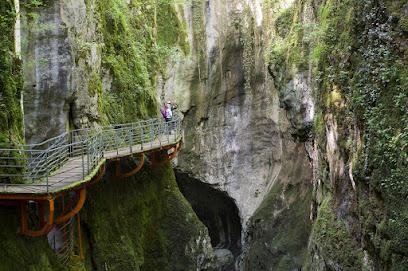
Parc La Grange
Explore the serene beauty of Parc La Grange, a lush park in Geneva offering stunning views, vibrant gardens, and tranquil walking paths.
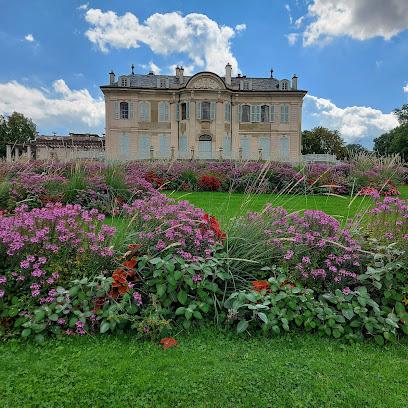
Château de Menthon-Saint-Bernard
Explore the enchanting Château de Menthon-Saint-Bernard, a stunning medieval castle offering breathtaking views of Lake Annecy and rich historical experiences.
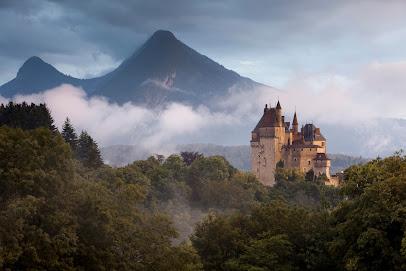
Musée-Château d'Annecy
Explore the rich history and art at Musée-Château d'Annecy, a stunning castle museum overlooking the picturesque Lake Annecy.
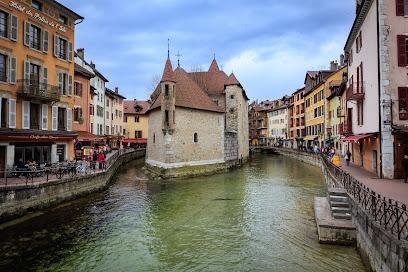
Le Palais de I'Île
Explore the historical gem of Le Palais de l'Île in Annecy, a captivating museum showcasing the rich heritage of the region amid stunning landscapes.
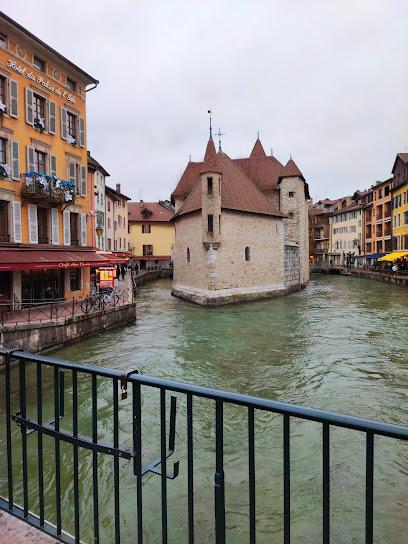
Muséum d'histoire naturelle
Discover the natural wonders of the world at Geneva's Muséum d'histoire naturelle, a free-entry museum showcasing diverse ecosystems and fascinating exhibits.
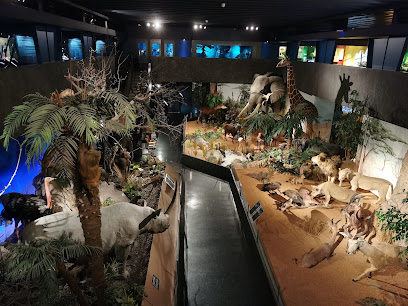
Palais des Nations
Explore Palais des Nations, the heart of diplomacy in Europe, where history, architecture, and international relations come together in stunning Geneva.
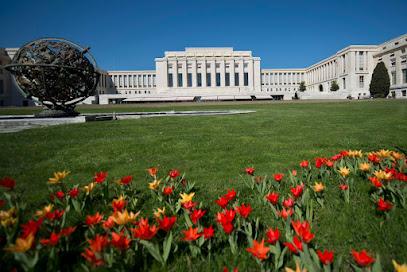
Essential places to dine
White Rabbit - Brunch & Co
Discover the ultimate brunch experience at White Rabbit - Brunch & Co in Geneva, where delicious flavors meet cozy ambiance.
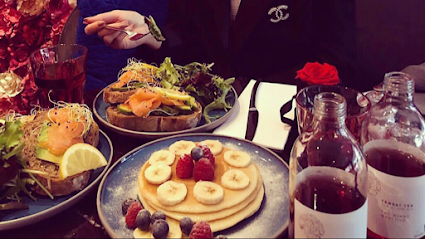
Restaurant Les Armures
Discover authentic Swiss flavors at Restaurant Les Armures in Geneva - where tradition meets taste in an enchanting setting.
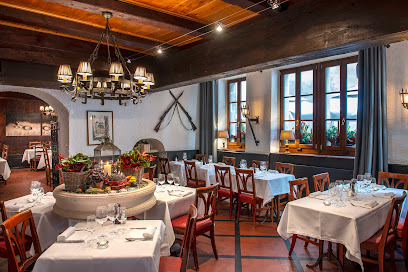
Café du Soleil
Discover authentic Swiss flavors at Café du Soleil in Geneva - renowned for fondue and delightful meat dishes in a cozy atmosphere.
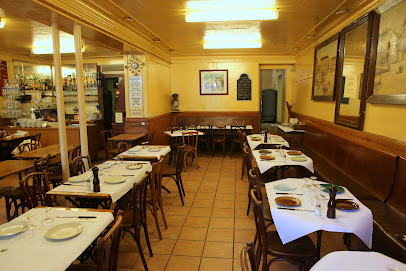
Brasserie Lipp
Experience exquisite French cuisine at Brasserie Lipp in Geneva—where elegance meets tradition in every bite.
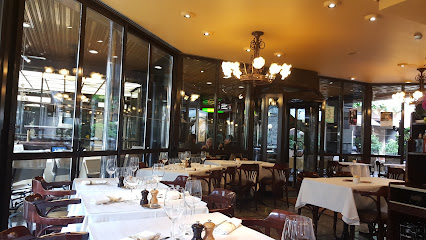
Chez Philippe - Bar Grill
Discover the exquisite flavors at Chez Philippe in Geneva - where culinary tradition meets modern dining elegance.
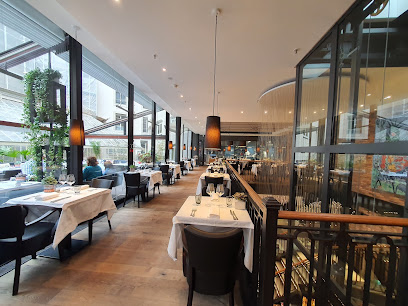
Inglewood Eaux-Vives
Discover the ultimate burger experience at Inglewood Eaux-Vives in Geneva – where gourmet meets comfort in every bite.
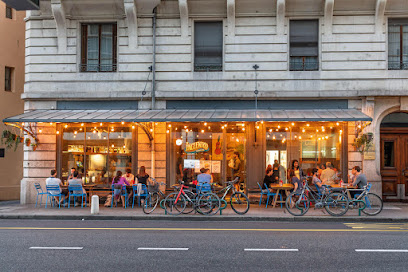
Cottage Café
Experience the charm of Cottage Café in Geneva – where delicious meals meet cozy ambiance.
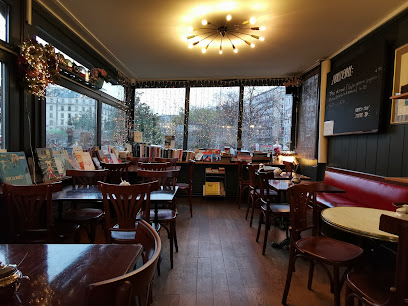
rooftop°42
Discover rooftop°42: where gourmet dining meets breathtaking views in the heart of Geneva.
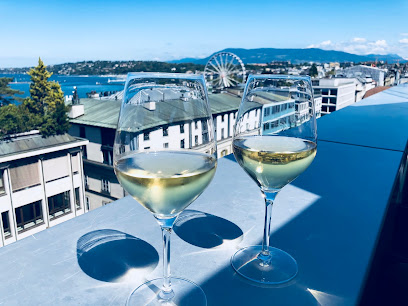
Restaurant la Perle du Lac
Discover exquisite dining at Restaurant la Perle du Lac, where culinary art meets stunning views of Lake Geneva in an elegant atmosphere.
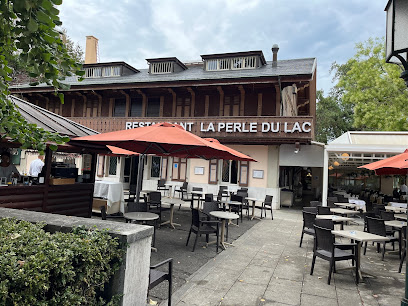
Bistrot du Bœuf Rouge
Discover exquisite French bistro dining at Bistrot du Bœuf Rouge in Geneva—where tradition meets taste.
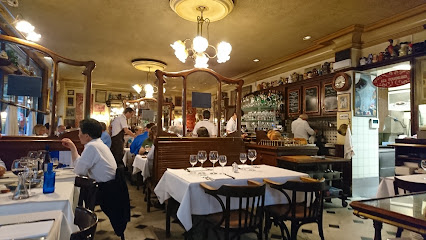
IZUMI
Discover the fusion of traditional Japanese cuisine and modern flavors at IZUMI in Geneva's luxurious Four Seasons Hotel.
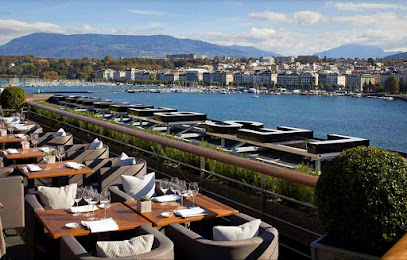
Café PAPON
Experience authentic Swiss flavors at Café PAPON in Geneva - where tradition meets modern elegance in every dish.
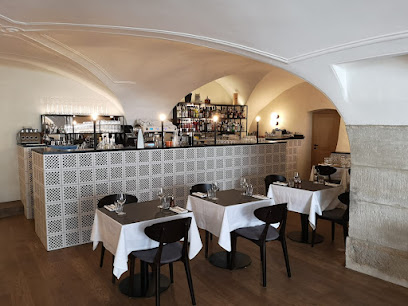
Au Pied de Cochon
Savor authentic French cuisine at Au Pied de Cochon in Geneva - where traditional flavors meet modern elegance.
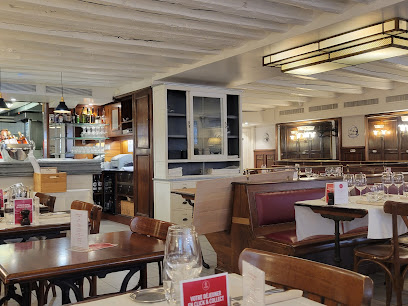
Le Thermomètre
Discover authentic French flavors at Le Thermomètre - Geneva's charming restaurant offering exquisite dishes in an inviting atmosphere.
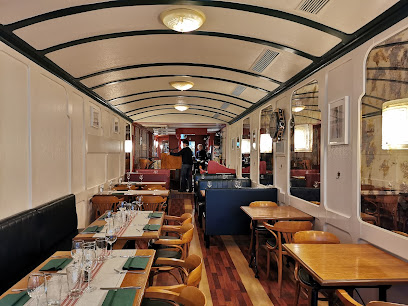
Restaurant Les 5 Portes
Discover exquisite fusion cuisine at Restaurant Les 5 Portes in Geneva, where local flavors meet global culinary artistry.
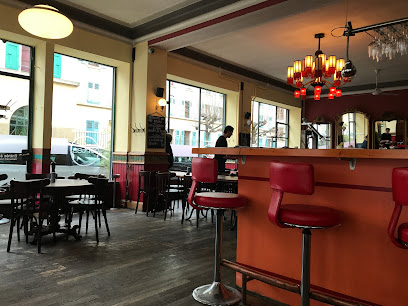
Markets, malls and hidden boutiques
MANOR Genève
Explore the vibrant shopping experience at MANOR Genève, where fashion, home goods, and local treasures await in the heart of the city.
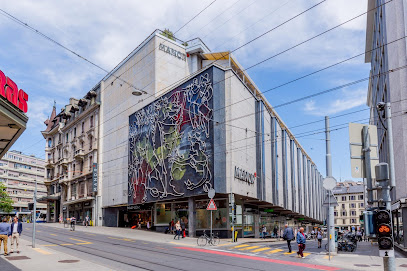
Balexert
Experience the ultimate shopping adventure at Balexert in Vernier, Switzerland, with a wide range of stores and dining options for every taste.
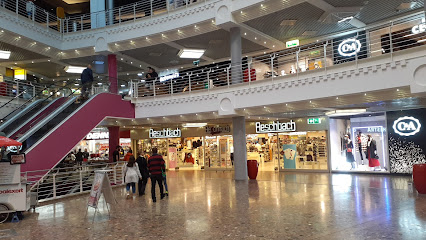
Confédération Centre
Experience shopping, dining, and culture all in one place at Geneva's Confédération Centre, a destination for every traveler.
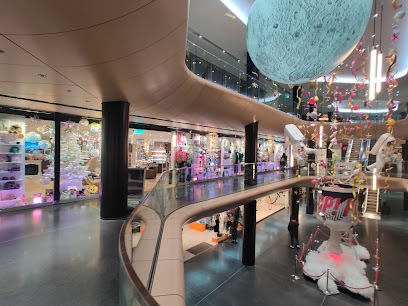
Metro Shopping Cornavin
Explore Metro Shopping Cornavin, Geneva's vibrant shopping mall, featuring diverse retail options and delightful dining experiences in the heart of the city.
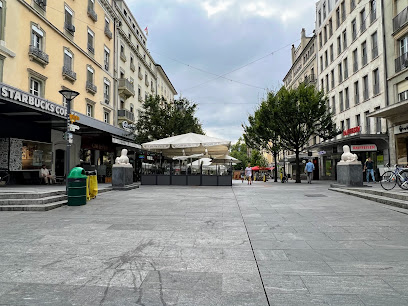
Victorinox Flagship Store Geneve
Discover the essence of Swiss craftsmanship at the Victorinox Flagship Store in Geneva, home to iconic knives, luggage, and watches.
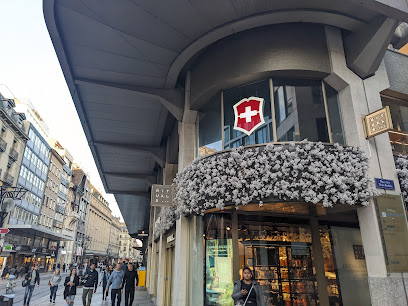
Maniak Genève
Explore Maniak Genève for unique clothing, accessories, and shoes that embody the spirit of modern fashion in the heart of Geneva.
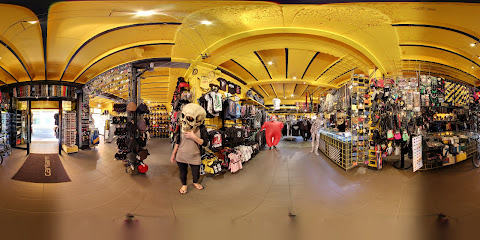
Louis Vuitton
Discover the elegance of Louis Vuitton in Geneva, where luxury leather goods and exquisite fashion accessories await discerning shoppers.
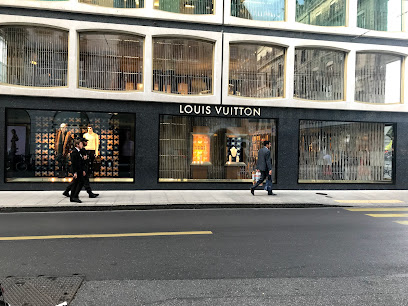
Bongénie Grieder
Discover the luxury of shopping at Bongénie Grieder in Geneva – a premier destination for fashion, beauty, and gourmet delights.
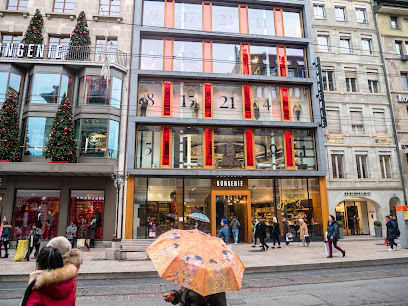
Alptitude original swiss souvenirs
Explore Alptitude in Geneva for a wide selection of authentic Swiss souvenirs that celebrate the rich culture and craftsmanship of Switzerland.
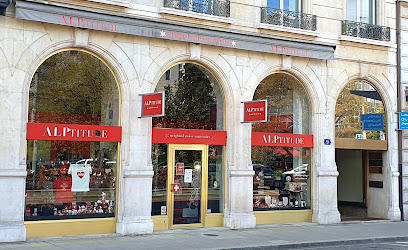
Downtown Uptown Genève - men's second hand
Explore sustainable fashion and unique style at Downtown Uptown Genève, your go-to second-hand store for men's clothing and accessories.
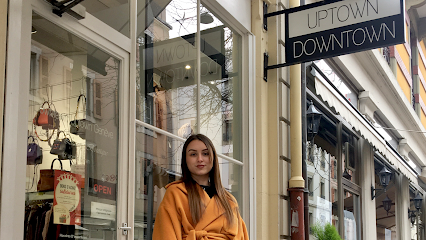
Renfile Boutique du CSP
Unearth unique vintage finds at Renfile Boutique du CSP in Geneva, where fashion meets charity for a sustainable shopping experience.
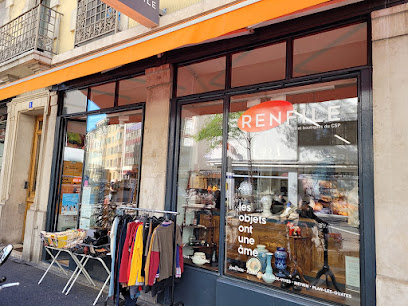
Molard Souvenirs
Discover unique Swiss watches, exquisite gifts, and authentic souvenirs at Molard Souvenirs in Geneva, a shopper's paradise.
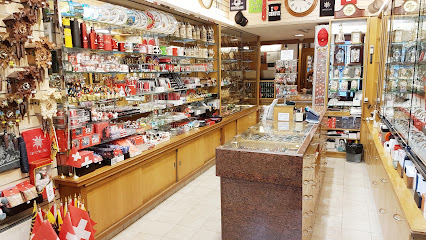
Comptoir des Alpes
Explore the exquisite craftsmanship of luxury timepieces at Comptoir des Alpes, Geneva's premier watch store, where elegance meets tradition.
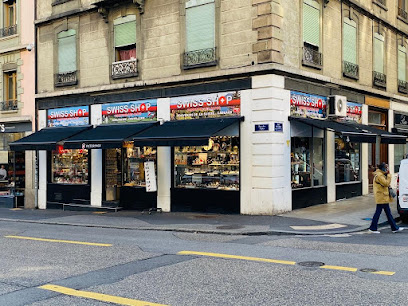
Flying Tiger Copenhagen
Explore Flying Tiger Copenhagen in Geneva for unique gifts, quirky home goods, and delightful toys that reflect Danish creativity and affordability.
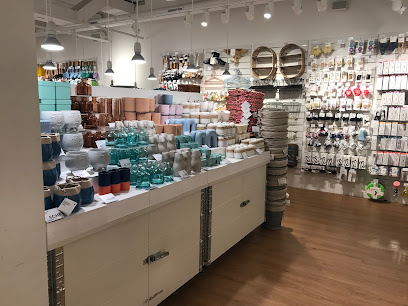
Silver Shop
Explore Silver Shop in Geneva for exquisite gift baskets and unique Swiss souvenirs that capture the heart of Swiss craftsmanship.
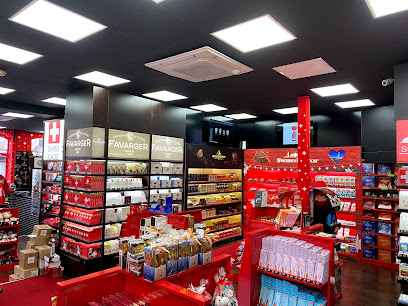
Essential bars & hidden hideouts
Mr Pickwick Pub
Discover Mr. Pickwick Pub: Geneva's lively pub with great food, live music, and sports to make your visit unforgettable.
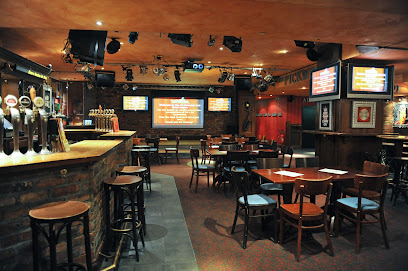
Lady Godiva Pub
Experience the lively atmosphere of Lady Godiva Pub in Geneva, where live music, delicious food, and sports come together in perfect harmony.
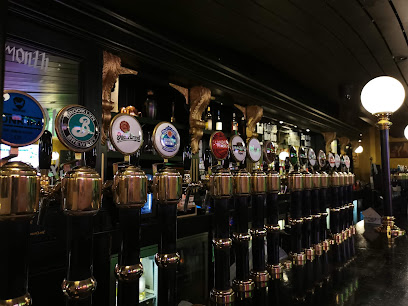
Le Kraken
Discover Le Kraken, Geneva's vibrant bar and restaurant, offering unforgettable dining and nightlife experiences in the heart of the city.
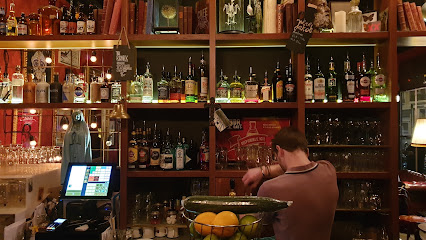
Le Verre à Monique
Le Verre à Monique: A cocktail haven in Geneva offering unique drinks and a vibrant atmosphere for an unforgettable night out.
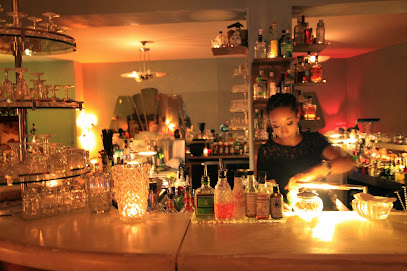
Bottle Brothers - Grand Bottle
Discover the innovative cocktail creations and vibrant atmosphere at Bottle Brothers - Grand Bottle, a must-visit cocktail bar in Geneva.
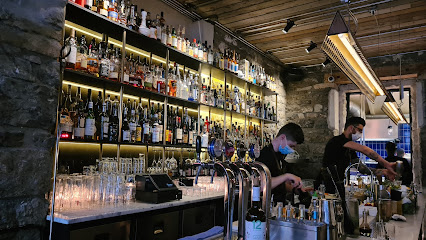
Black Sheep
Discover the vibrant cocktail culture at Black Sheep, Geneva's favorite bar known for its creative drinks and welcoming atmosphere.
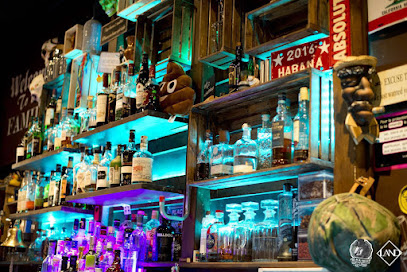
L'Apothicaire Cocktail-Club
Discover Geneva's premier cocktail bar, L'Apothicaire Cocktail-Club, where innovative drinks and a vibrant atmosphere await.
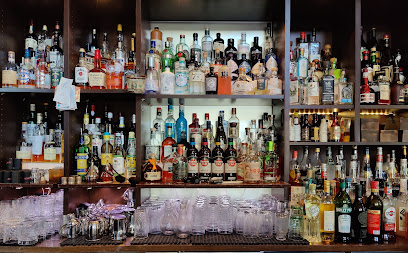
Roi Ubu
Experience the vibrant nightlife of Geneva at Roi Ubu, a lively bar known for its welcoming atmosphere and diverse drink selection.
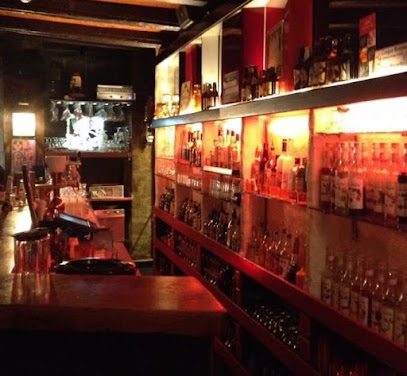
Little Barrel
Experience unique cocktails and a vibrant atmosphere at Little Barrel, a chic bar in the heart of Geneva's nightlife.
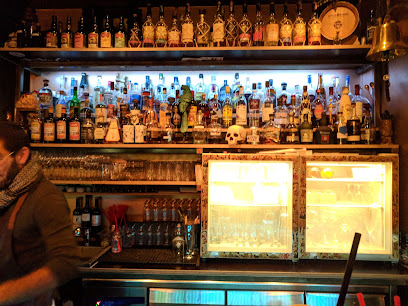
The Leopard Room Bar & Lounge
Experience elegance and vibrant nightlife at The Leopard Room Bar & Lounge in Geneva, where exquisite cocktails meet stunning lake views.
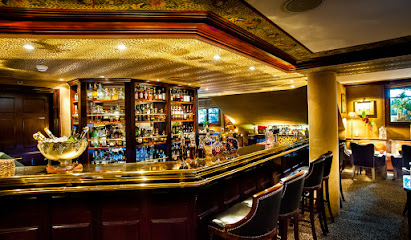
Boléro Bar
Discover Boléro Bar in Geneva, a vibrant nightlife destination offering an extensive drink menu and a welcoming atmosphere for all.
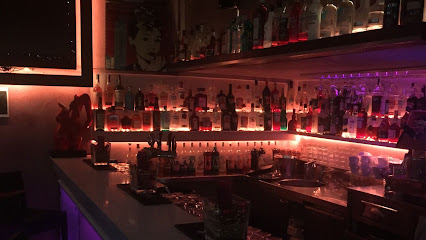
22 grand'rue
Discover a cocktail haven at 22 Grand'Rue in Geneva, where exquisite drinks and an inviting atmosphere create an unforgettable night out.
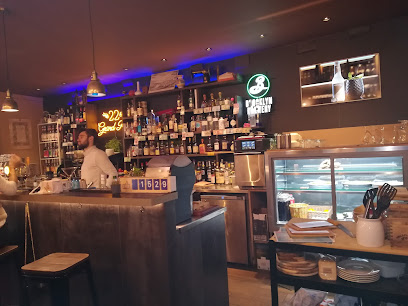
Pub Lord Jim
Discover the lively atmosphere of Pub Lord Jim in Geneva, a perfect spot for drinks, socializing, and enjoying local nightlife.
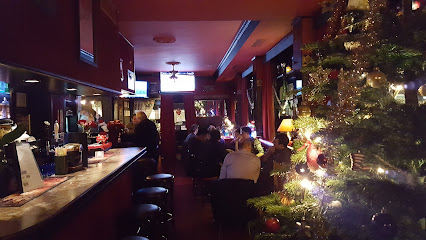
La Bretelle Bar Associatif
Discover La Bretelle Bar Associatif in Geneva, a cozy bar with affordable wines and a welcoming atmosphere perfect for relaxation and socializing.
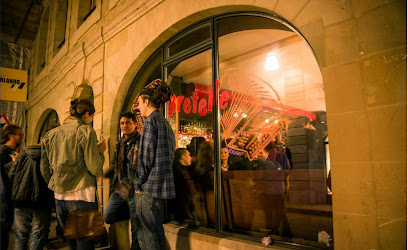
Local Phrases
-
- HelloBonjour
[bon-zhoor] - GoodbyeAu revoir
[oh ruh-vwahr] - YesOui
[wee] - NoNon
[nohn] - Please/You're welcomeS'il vous plaît/De rien
[seel voo pleh/duh ryen] - Thank youMerci
[mehr-see] - Excuse me/SorryExcusez-moi/Désolé
[ex-kew-zay mwa/day-zoh-lay] - How are you?Comment ça va?
[kom-mohn sah vah] - Fine. And you?Bien. Et vous?
[byen. ay voo] - Do you speak English?Parlez-vous anglais?
[par-lay voo ahn-glay] - I don't understandJe ne comprends pas
[zhuh nuh kohm-prahnd pah]
- HelloBonjour
-
- I'd like to see the menu, pleaseJe voudrais voir la carte, s'il vous plaît
[zhuh voo-dray vwahr lah kart, seel voo pleh] - I don't eat meatJe ne mange pas de viande
[zhuh nuh mahnzh pah duh vee-ahnd] - Cheers!Santé!
[sahn-tay] - I would like to pay, pleaseJe voudrais payer, s'il vous plaît
[zhuh voo-dray pay-yay, seel voo pleh]
- I'd like to see the menu, pleaseJe voudrais voir la carte, s'il vous plaît
-
- Help!Au secours!
[oh suh-koo-ruh] - Go away!Allez-vous en!
[ah-lay voo zahn] - Call the Police!Appelez la police!
[ah-pay-lay lah poh-lees] - Call a doctor!Appelez un médecin!
[ah-pay-lay uh may-deh-sahn] - I'm lostJe suis perdu
[zhuh swee pair-doo] - I'm illJe suis malade
[zhuh swee mah-lahd]
- Help!Au secours!
-
- I'd like to buy...Je voudrais acheter...
[zhuh voo-dray za-she-tay] - I'm just lookingJe regarde seulement
[zhuh ruh-gard suhl-mahn] - How much is it?Combien ça coûte?
[kohm-byen sah koot] - That's too expensiveC'est trop cher
[say troh shair] - Can you lower the price?Pouvez-vous baisser le prix?
[poo-veh voo beh-say luh pree]
- I'd like to buy...Je voudrais acheter...
-
- What time is it?Quelle heure est-il?
[kel er ay teel] - It's one o'clockIl est une heure
[eel ayz oon er] - Half past (10)Dix heures et demie
[dee er ay ehm-ee] - MorningMatin
[ma-tahn] - AfternoonAprès-midi
[ah-pray mee-dee] - EveningSoir
[swahr] - YesterdayHier
[yair] - TodayAujourd'hui
[oh-zhoor-dwee] - TomorrowDemain
[de-mahn] - 1Un
[uhn] - 2Deux
[duh] - 3Trois
[twah] - 4Quatre
[kat] - 5Cinq
[sank] - 6Six
[sees] - 7Sept
[sept] - 8Huit
[weet] - 9Neuf
[nuf] - 10Dix
[dee]
- What time is it?Quelle heure est-il?
-
- Where's a/the...?Où est un/le...?
[oo ay uh/luh] - What's the address?Quelle est l'adresse?
[kel ay lah-dress] - Can you show me (on the map)?Pouvez-vous me montrer (sur la carte)?
[poo-veh voo muh mohn-tray (soor lah kart)] - When's the next (bus)?Quand est le prochain (bus)?
[kahn ay luh proh-shahn (boos)] - A ticket (to ....)Un billet (pour ...)
[uhn bee-yay (poor)]
- Where's a/the...?Où est un/le...?
History of Geneva
-
Geneva's history dates back to ancient times when it was a settlement of the Allobroges, a Gallic tribe. It became part of the Roman Empire in 121 BC, serving as an important outpost because of its strategic location near the Alpine passes and the Rhône River.
-
During the Middle Ages, Geneva was ruled by a prince-bishop, blending both spiritual and temporal authority. The city frequently found itself at the crossroads of European politics and trade, benefiting from its location on key trade routes.
-
The Protestant Reformation dramatically altered Geneva's religious landscape. In 1536, John Calvin arrived in the city, turning it into a center of Protestantism. Calvin's influence was so profound that Geneva became known as the 'Protestant Rome.'
-
In 1541, Geneva declared itself an independent republic and adopted a new constitution. The city thrived as a hub for reformist ideas and became a haven for Protestant refugees from across Europe.
-
The 18th century saw Geneva become a focal point for Enlightenment thought. Philosophers like Voltaire and Rousseau were either born in the city or drawn to it, contributing to its intellectual and cultural development.
-
In 1798, Geneva was annexed by France under Napoleon Bonaparte. However, the city regained its independence in 1814 after the fall of Napoleon and was admitted to the Swiss Confederation in 1815.
-
In the 20th century, Geneva established itself as a global city by hosting numerous international organizations. The League of Nations was headquartered here, and today the city hosts the European headquarters of the United Nations and the International Red Cross, among others.
-
Geneva is a melting pot of cultures, owing to its long history of welcoming refugees and expatriates. This diversity is reflected in its vibrant cultural scene, including numerous museums, theaters, and festivals.
Geneva Essentials
-
Geneva is well-connected by air, rail, and road. The main entry point by air is Geneva International Airport (GVA), located just 4 km from the city center. The airport is served by numerous international airlines, making it accessible from major cities worldwide. For those traveling by train, Geneva Cornavin is the primary railway station, with frequent services from other Swiss cities and neighboring countries. The city is also accessible by car, with major highways connecting Geneva to France, Italy, and the rest of Switzerland.
-
Geneva boasts an efficient and extensive public transportation system, including buses, trams, and boats operated by Transports Publics Genevois (TPG). Tickets can be purchased at ticket machines and are valid across all modes of transport. Taxis are available but can be expensive. Biking is popular, with numerous rental options and dedicated bike lanes. For those staying in hotels, a free Geneva Transport Card is often provided, allowing unlimited use of public transport during your stay.
-
The official currency in Geneva is the Swiss Franc (CHF). Credit and debit cards are widely accepted in hotels, restaurants, and shops. ATMs are readily available throughout the city, and many establishments also accept Euros, though change will be given in Swiss Francs. It's advisable to carry some cash for smaller purchases and in places where card payments might not be accepted.
-
Geneva is generally a safe city for tourists, with low crime rates. However, like any major city, it is wise to take standard precautions. Avoid leaving belongings unattended and be cautious of pickpockets in crowded areas such as Gare Cornavin, Paquis, and Plainpalais. Walking alone at night is generally safe, but it is advisable to stay in well-lit and populated areas.
-
In case of emergency, dial 117 for police, 144 for medical emergencies, and 118 for the fire department. Geneva University Hospitals (HUG) offer comprehensive medical services. Pharmacies are widely available, and many are open 24 hours. It is recommended to carry a copy of your travel insurance details and emergency contact numbers.
-
Fashion: Do dress smart-casual; Geneva is a cosmopolitan city with a penchant for stylish but understated attire. Don't wear overly casual clothes like flip-flops or shorts in upscale establishments. Religion: Do respect religious sites; many churches and temples are open to visitors but require modest dress and quiet demeanor. Public Transport: Do validate your ticket before boarding; inspectors frequently check tickets. Don't eat or drink on public transport. Greetings: Do greet people with a handshake and maintain eye contact. Don't use first names unless invited to do so. Eating & Drinking: Do try local specialties like fondue and raclette. Don't rush through meals; dining is a leisurely affair.
-
To experience Geneva like a local, visit the Plainpalais flea market for unique finds and local goods. Enjoy a stroll along the lakeside promenade or take a boat ride on Lake Geneva. Explore the Carouge district, known for its bohemian atmosphere and artisan shops. For an authentic culinary experience, dine at a local bistro and try the local wines from the Geneva region.
Trending Landmark in Geneva
-
Jardin Anglais
-
The Geneva Water Fountain
-
The Flower Clock
-
Broken Chair
-
St Pierre Cathedral
-
Palais des Nations
-
Brunswick Monument
-
Musée d'Art et d'Histoire
-
Parc de La Perle du Lac
-
Reformation Wall - Paul Landowski
-
Patek Philippe Museum
-
Place du Bourg-de-Four
-
Pointe de la Jonction
-
Promenade de la Treille
-
Russian Orthodox Church
Nearby Cities to Geneva
-
Things To Do in Annecy
-
Things To Do in Lausanne
-
Things To Do in Vevey
-
Things To Do in Montreux
-
Things To Do in Lyon
-
Things To Do in Grenoble
-
Things To Do in Zermatt
-
Things To Do in Thun
-
Things To Do in Bern
-
Things To Do in Murren
-
Things To Do in Interlaken
-
Things To Do in Dijon
-
Things To Do in Grindelwald
-
Things To Do in Turin
-
Things To Do in Basel















